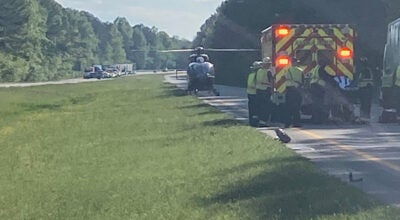Veterans support veterans in Western Tidewater
Published 10:22 pm Monday, February 25, 2019
The Western Tidewater Community Services Board is assisting in a groundbreaking pilot project that will provide peer support for veterans.
Orders Home is a voluntary, peer-led focus group designed for transitioning service members, reservists, National Guard, veterans and military connected family members in Western Tidewater, including Suffolk.
Groups are held from 1 to 3 p.m. on Mondays at the Suffolk Workforce Redevelopment Center, 157 N. Main St., and also on Wednesday from 4:30 to 6:30 p.m. at Western Tidewater Community Services Board, 1000 Commercial Lane.
Participants receive support and guidance in navigating the U.S. Department of Veterans Affairs and help in finding resources for employment, debt, counseling for physical and mental health and other areas of concern.
“What we do — and what the program is all about — is work with and empower these transitioning military members to help resolve problematic, social issues,” said Thomas Pratt, a certified peer support specialist.
In 2015, the Clay Hunt SAV Act was passed so that transitioning service members and veterans would have increased access to mental health resources through a peer support and community outreach program. Clay Hunt was a Marine veteran who took his own life at age 28 in March 2011, after months of struggling in an effort to receive sufficient medical care for his PTSD.
President Donald Trump signed Executive Order 13822 in January 2018 that established requirements for a Joint Action Plan that would provide seamless access to mental health treatment and suicide prevention resources for uniformed service members in their first year of transition into civilian life.
“Veterans, in their first year of separation from uniformed service, experience suicide rates approximately two times higher than the overall veteran suicide rate,” according to Executive Order 13822. “To help prevent these tragedies, all veterans should have seamless access to high-quality mental health care and suicide prevention resources as they transition, with an emphasis on the 1-year period following separation.”
This allowed funding for Hampton VA Medical Center to establish a contract with WTCSB that would expand its peer-led support services to transitioning service members in more rural, underserved areas covered by Hampton VA.
Pratt estimated making contact with about 3,000 to 5,000 transitioning active duty military, reservist, national guard and Veterans not yet linked to Veterans Affairs services by Sept. 30, according to an email shared by John Rogers, public affairs for Hampton VA.
Each of the peer support specialists working with Orders Home is able to relate through their own military experiences, including Navy, Army and Air Force.
“We have a plethora of experience between the five of us to go out into these rural communities,” said Lindsay Maldonado, the spouse of an Army National Guardsman with a master’s in mental health counseling.
Orders Home is one of several pilot programs and the first and only of its kind in the United States, according to Maldonado, which allows veterans and their families work on their respective problems with someone that understand the difficulty of this transition period.
“What makes this groundbreaking is that it’s a holistic, whole-health approach (by) putting the individuals with somebody who has life experiences similar to theirs, where we can work together to break down those barriers by looking at life experiences that we all shared,” said peer support specialist Benjamin Miles, a U.S. Air Force veteran.
Visit wtcsb.org for more information.






